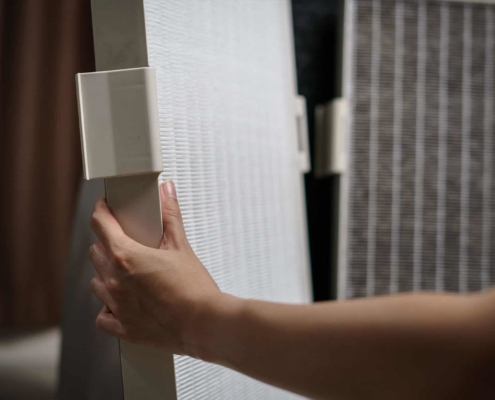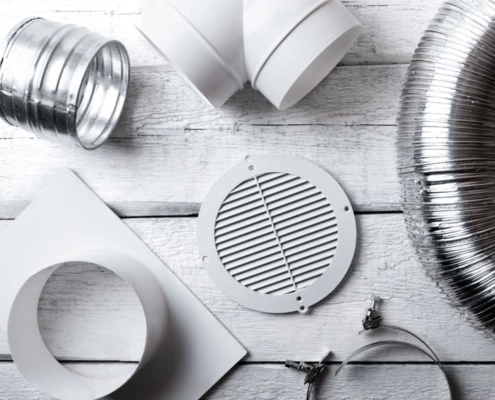 https://www.aircomfort.com/wp-content/uploads/2021/04/Bipolar-ionization-at-work-with-cleaner-hvac-filter.jpg
1250
2000
Ike Oji
/wp-content/uploads/2021/08/AC_Logo_FIN_-wTag.png
Ike Oji2021-03-19 09:03:002021-10-08 11:32:31Improve Indoor Air Quality With Bipolar Ionization
https://www.aircomfort.com/wp-content/uploads/2021/04/Bipolar-ionization-at-work-with-cleaner-hvac-filter.jpg
1250
2000
Ike Oji
/wp-content/uploads/2021/08/AC_Logo_FIN_-wTag.png
Ike Oji2021-03-19 09:03:002021-10-08 11:32:31Improve Indoor Air Quality With Bipolar IonizationWhat Is IECC and How Does It Affect Your Business?
If you’re a business owner, property developer, or planning to build a new facility in the state of Illinois, you’ve undoubtedly heard of the International Energy Conservation Code (IECC). With the 2021 IECC changes now in place, it’s critical to have a deep understanding of the new requirements set forth to ensure you’re compliant with the updated standards. Continue reading this article to learn more about IECC codes, how they may affect your business, and:
What is IECC?
The International Energy Conservation Code (IECC) is responsible for developing and publishing the International Code Council (ICC). IECC is a model code designed to create and uphold minimum energy efficiency standards for the design and construction of new residential buildings and commercial buildings. Surprisingly, the United States lacks a standardized national energy code.
Instead, all 50 states have adopted IECC codes to ensure new build projects comply with minimum efficiency levels. The IECC codes set forth by the ICC cover each facet of energy usage for a wide range of elements. Energy conservation and additional efficiency requirements for HVAC, ventilation, water heating, appliance power usage, building systems, and many other categories are determined by the IECC’s model energy code.
HVAC Winter Tune-Ups
Whether it’s to increase air conditioning performance in the summer or heating in the winter, regular commercial HVAC equipment maintenance is necessary. An HVAC tune-up ensures your equipment is ready to handle the uptick in demand and maximize efficiency.
If your system works harder than it should to keep a tolerable indoor temperature, it’s sure to have a negative impact. HVAC winter tune-ups are a great way to address minor issues within your HVAC components before they require complex and costly repairs or even premature replacement.
The problem with proactive, regular maintenance is that it’s easily forgotten about until a serious problem arises. Rather than relying on your memory, find an HVAC specialist that offers maintenance contracts. Your maintenance provider can handle scheduling and reminders, making your HVAC winter tune-up as seamless and hassle-free as possible.
Who Determines IECC Energy Code Adoptions?
The 2021 IECC changes, and all previous editions, were determined by officials representing local jurisdictions and states from across the U.S. However, for the 2024 IECC, code change proposals and subsequent energy code adoptions will be decided by committee members. These members are representatives of nine various groups, including regulators from the federal government.
The critical difference between the 2021 International Energy Conservation Code and the 2024 meeting is the code development and implementation processes. Members of the government were ultimately the deciding factor for 2021 IECC changes. In the future, the committee members will have the final say on model building codes, with government representatives being a part of the committee.

Significant 2021 IECC Changes
The IECC in 2021 saw significant changes in residential and commercial building energy codes. One notable change was Section C406’s increase in the number of additional options for efficiency requirements. Another noteworthy change to the IECC code is the holistic update to climate zone provisions. This change added a Climate Zone 0 and saw 10% of U.S. counties get assigned a new climate zone.
Let’s take a close look at some of the 2021 IECC changes:
Residential IECC Code Changes
With the 2021 IECC changes, building envelopes now face higher insulation requirements. The changes also reduced fenestration U-factors and gain coefficients for solar heat. IECC 2021 also set new standards for air leakage and duct testing.
The mechanical systems category provides clarification on duct locations and required insulation standards. The ICC also removed the exception for duct testing in conditioned areas and established new testing requirements for mechanical ventilation systems. Electrical power and lighting systems saw the addition of new interior lighting controls and exterior lighting requirements in limited residential buildings.
- The IECC 2021 includes five options for achieving compliance:
- Advanced envelope efficiency and performance
- More efficient performance from HVAC equipment
- Reduced energy used for heating service water
- Improved efficiency for duct thermal distribution systems
- Advanced air sealing and ventilation system efficiency
Commercial IECC Code Changes
In the building envelope category, we saw major shifts in three areas. Insulation requirements were increased while the new conditions reduced fenestration U-factors and solar heat gain coefficients. IECC’s 2021 changes also furthered envelope air leakage testing and verification standards. New provisions were also adopted for mandatory controls and operable openings interlocking.
Mechanical systems have updated efficiency requirements for equipment. IECC also adjusted energy recovery ventilation requirements and changed fan efficiency metrics. The ICC also modified IECC codes to increase electrical power and lighting efficacy. Lighting power density requirements were simultaneously decreased with the changes. New provisions were outlined for automatic receptacle controls, energy metering, and monitoring.
How Do IECC and ASHRAE Differ?
While IECC establishes a model energy code that references ASHRAE 90.1, ASHRAE 90.1 isn’t code. Instead, it is a minimum standard of energy efficiency. Because ASHRAE requirements are established before IECC, IECC adopts ASHRAE standards. IECC also adds addendums and increases standards, making it a more stringent set of guidelines.
IECC is the U.S. Model Residential Energy Code. ASHRAE 90.1 is the model code for commercial buildings, but most states have adopted commercial IECC with the option to comply through ASHRAE 90.1.
Air Comfort Provides ASHRAE and IECC 2021 Compliant Services
Since 1935, Air Comfort has provided Chicagoland with the highest quality services. Whether you’re in need of mechanical contracting services like design-build construction for an HVAC system or need a commercial boiler system installed, we’re your one-stop solution.
All of our HVAC solutions are designed to provide maximum efficiency and performance. Our staff is highly trained, skilled, and certified by the industry’s regulating bodies and most trusted manufacturers. This ensures your HVAC system is not only expertly designed, installed, and maintained but also meets all ASHRAE and IECC standards.
Reach out to Air Comfort today to discuss your commercial HVAC needs and how we can help you reach your business’s heating, cooling, and efficiency goals and objectives.
Related Postings
 https://www.aircomfort.com/wp-content/uploads/2021/04/Bipolar-ionization-at-work-with-cleaner-hvac-filter.jpg
1250
2000
Ike Oji
/wp-content/uploads/2021/08/AC_Logo_FIN_-wTag.png
Ike Oji2021-03-19 09:03:002021-10-08 11:32:31Improve Indoor Air Quality With Bipolar Ionization
https://www.aircomfort.com/wp-content/uploads/2021/04/Bipolar-ionization-at-work-with-cleaner-hvac-filter.jpg
1250
2000
Ike Oji
/wp-content/uploads/2021/08/AC_Logo_FIN_-wTag.png
Ike Oji2021-03-19 09:03:002021-10-08 11:32:31Improve Indoor Air Quality With Bipolar Ionization https://www.aircomfort.com/wp-content/uploads/2019/11/Content-image_ventilation-system-items-and-joints.-top-view1.jpg
600
800
Ike Oji
/wp-content/uploads/2021/08/AC_Logo_FIN_-wTag.png
Ike Oji2018-07-23 14:10:312021-10-08 13:09:303 Strategies to Improve Indoor Air Quality
https://www.aircomfort.com/wp-content/uploads/2019/11/Content-image_ventilation-system-items-and-joints.-top-view1.jpg
600
800
Ike Oji
/wp-content/uploads/2021/08/AC_Logo_FIN_-wTag.png
Ike Oji2018-07-23 14:10:312021-10-08 13:09:303 Strategies to Improve Indoor Air Quality

About
Air Comfort’s mission is to work closely with customers to provide a true “comfort level” for their businesses, with uninterrupted performance and round-the-clock reliability.

